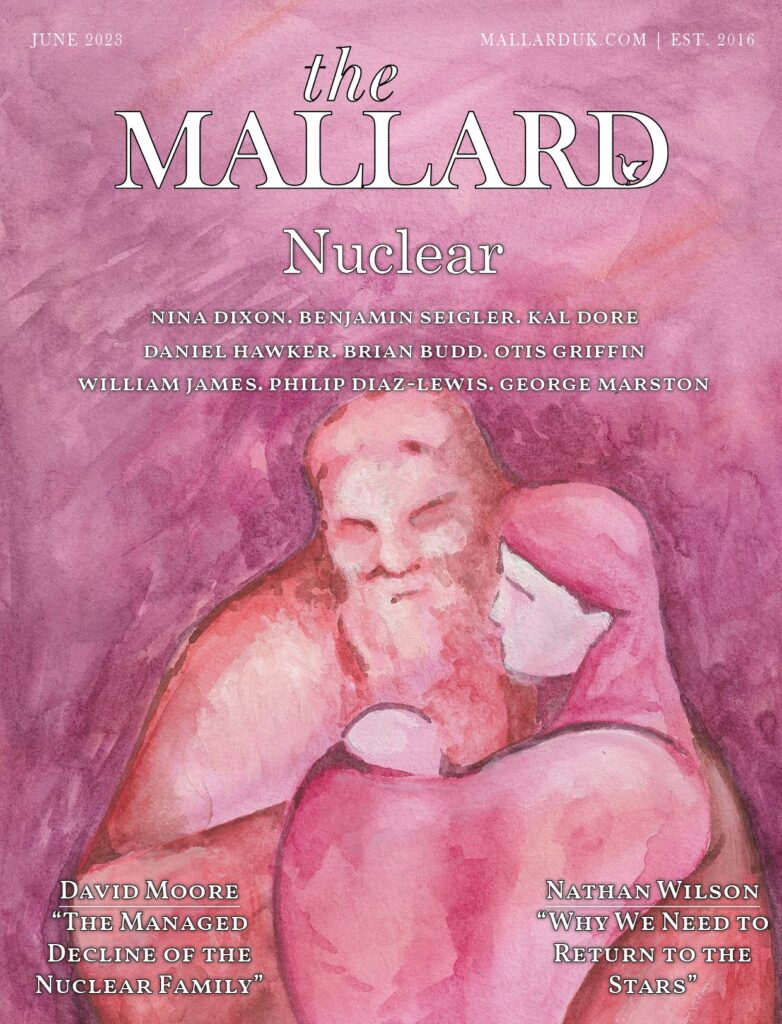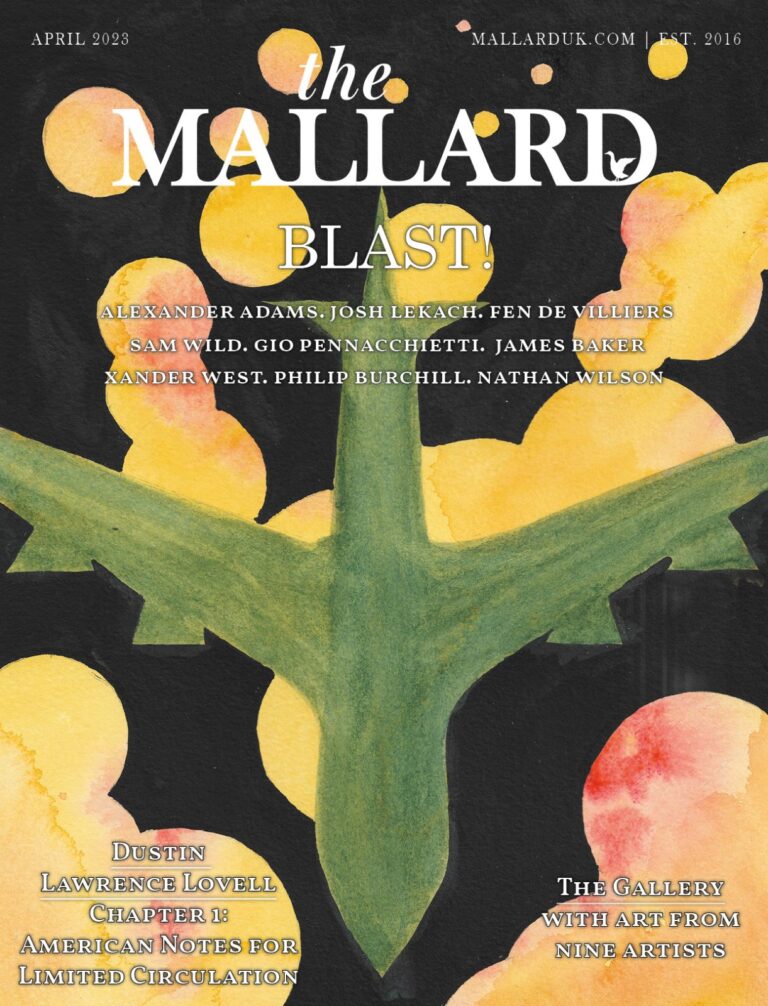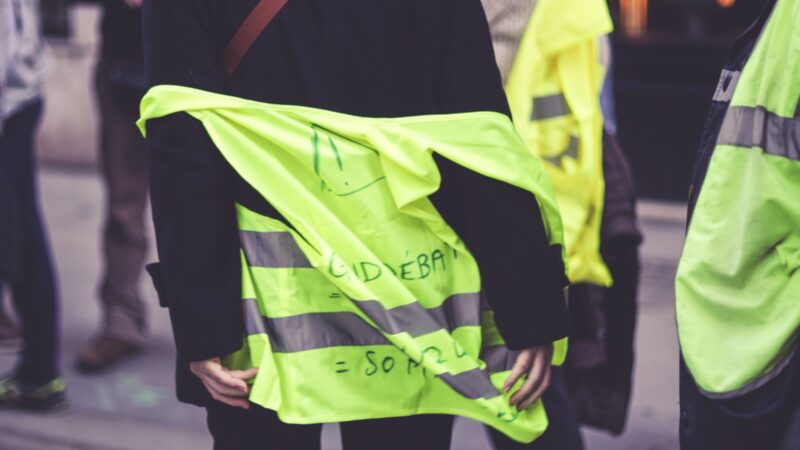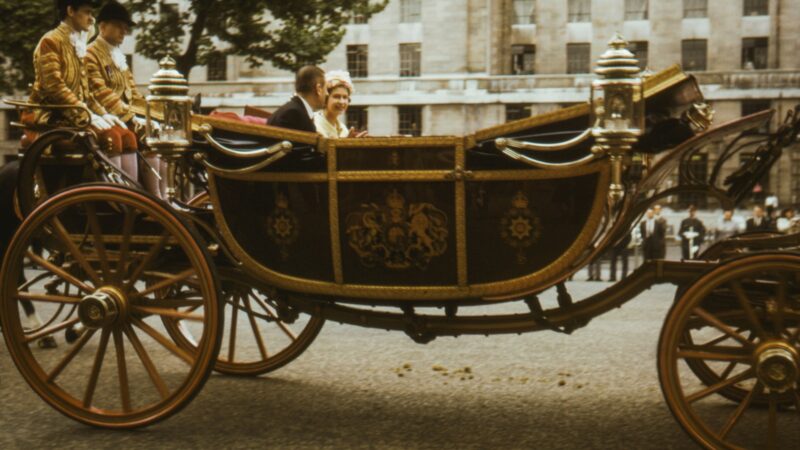In the last magazine, I outlined a Sensible Proposal for reforming the British state. It wasn’t exhaustive, but the meat and potatoes were there. In the proposal, I briefly mentioned the need to do exactly this. I suggested the BBC, if it wants to be spared abolition, should broadcast stuff worth watching – programs that will elevate, rather than demoralise, our great nation.
Specifically, I proposed broadcasting Spy x Family to the masses.
Far from being tongue-in-cheek, I sincerely believe that such a policy – and similar policies – would be excellent reforms for any government to implement.
For the uninformed, Spy x Family is a Japanese manga series created by Tatsuya Endo in 2019. The story follows a spy (Loid Forger, codename: Twilight) who has to “build a family” to execute a top secret mission. Unbeknownst to him, the girl he adopts as his daughter (Anya Forger) is a telepath, and the woman he agrees to be in a marriage with (Yor Forger, née Briar) is a skilled assassin.
As of March 2023, Spy x Family has over 30 million copies in circulation, making it one of the best-selling manga series in history. On April 9th 2022, the Spy x Family anime was released. Like the manga, its popularity was instantaneous, obtaining around 7 millions views on its inaugural episode – an immense success for a new show.
Appealing across and within various demographics, topping the charts as Japan’s favourite anime of 2022, it has cultivated an eager international fanbase. Consisting of 25 episodes, a second season will premiere this year, as well as an anime film.
That said, whilst the media success of Spy x Family is there for all to see, little is said about its impact on Japanese society. Nine months after the show’s debut, Japan’s fertility rate experienced an uptick after consecutive years of stagnation and decline.
Sure, it was a very small uptick and Japan’s fertility rate remains far below the point of replacement. In all technicality, Japan’s continues to worsen, just at a less severe rate. Nevertheless, in less than a year, Japan has gone from another stereotypically infertile state to the most fertile nation in the Far East.
Coincidence? I think not!
As a matter of fact, one of the most common reasons for remaining childless, often surpassing financial concerns, is the presumption that having children will deplete one’s quality of life.
Considering how bad things are becoming in Britain, one would require a pretty pessimistic idea of what family entails. Indeed, when you realise what people think of when they hear the word “family”, it’s easy to see why.
At the beginning of the last century, positive portrayals of family life were hegemonic; portrayals that contrasted a more nuanced reality: family life was often less-than-picturesque. Consequently, more cynical (or realistic, depending on your exact stance) portrayals of the family became more commonplace.
I invite you to look at literally any TV show made over the past 30 years. Families are almost always portrayed as rowdy prisons, children are portrayed as nasty parasites, and divorce is portrayed as blissful liberation.

This is an excerpt from “Nuclear”.
To continue reading, visit The Mallard’s Shopify.
You Might also like
-
Book Review: Ten Year Anniversary, The Demon in Democracy, by Ryszard Legutko | Ryan Anderson
A rarely remarked upon effect of Covid-19 has been the neglect of works that would have ordinarily garnered broader acclaim. Thus, as we’ve been distracted by the medical events, an assortment of commendable offerings have largely escaped public attention. One such work is ‘The Demon in Democracy: Totalitarian Temptations in Free Societies’ by Polish academic and European Parliament member, Ryszard Legutko. Originally published in 2012 as Triumf Człowieka Pospolitego (Triumph of the Common Man), then edited and first appearing in English in 2016, Legutko’s book is a rare recent work of real import. A decade on from its original publication, Legutko’s book is still one of the best indictments yet of our liberal age
In a similar vein to the works of Christopher Lasch and John Gray, Legutko’s is an account that is tepid towards the Thatcherite consensus that has come to define the right whilst resisting the easy overtures of our dominant left-liberalism. It’s a book that illuminates the errors of the age as it rejects the pieties that our epoch demands.
Like Ed West, Michael Anton and Christopher Caldwell, Legutko is one of few contemporary writers willing to provide an honest account of the liberal status quo. By not succumbing to our assorted unrealities, Legutko is able to articulate the inadequacies of liberal democracy without the pusillanimous equivocation that’s sadly all too prevalent. The book is thus a welcome addition to what is an otherwise bleak scene for the conservatively inclined, entrapped as we are in the all-pervasive mould of liberalism.
Such commendations aren’t restricted to this reviewer, however. Figures such as Harvard’s Adrian Vermeule and Notre Dame’s Patrick Deneen have been equally effusive. For as Vermeule wrote: “Legutko has written the indispensable book about the current crisis of liberalism and the relationship of liberalism to democracy”, while for Deneen the book is a “work of scintillating brilliance. [With] every page…brimming with insights.”
High praise, undoubtedly, yet it’s well vindicated upon reading. The central thesis is that despite an outward appearance of difference, communism and liberal democracy share a range of similarities. An observation that appears prima facie preposterous, yet after 180-odd pages of tightly-packed prose the reader is unable to avoid this unsettling insight.
The rationale for this claim is as such: both are inorganic systems that involve unnatural impositions and coercive zeal in their pursuit of illusory utopias. Utopias that are to be achieved practically through technology and ‘modernisation’ and buttressed theoretically by the purported fact of human equality. The two are thus historicist projects, seeking to ground human affairs in delusions of ‘progress’ in lieu of any underlying nature.
Both platforms are thus mere dogma. They are, as Legutko states:
“Nourished by the belief that the world cannot be tolerated as it is and that it should be changed: that the old should be replaced with the new. Both systems strongly and – so to speak – impatiently intrude into the social fabric and both justify their intrusion with the argument that it leads to the improvement of the state of affairs by ‘modernizing’ it.”
The two systems are hence unable to accept human beings and political affairs as they actually are: man and the polis must be remoulded along the lines of each respective ideology. For the communists, this involves the denial of man’s natural egotism and the subordination of his individual efforts towards an ostensible communal good. That this requires extreme coercion in implementation, unfathomable violence in practice, and has been deemed a delusion since at least Plato’s Republic, is a tragedy that’s all too commonly known.
So far, nothing new. Yet it’s the author’s elucidation of the unsavoury aspects of liberal democracy that is of particular note, especially for us here at the so-called ‘end of history’ and in light of the easy-going liberalism that permeates our societies, even as they slip further and further into evident decay. As Legutko suggests, liberal democracy shares a proselytising urge akin to that of Leninist communism, yet it’s as equally blind to its theoretical errors and its evangelical impulses as was its communist forebear.
As Legutko sees it, a liberal-democratic man can’t rest until the world has been vouched safe for liberal democracy. Never mind that this liberal-democratic delusion requires a tyranny over the individual soul – we’re neither wholly liberal nor democratic – and entire groups of people. An emblematic example is the recent US-led failure to impose either democracy or liberalism (terms that Legutko fuses and distinguishes, as appropriate) on the largely tribal peoples of Afghanistan.
The justification for this liberal-democratic ‘imperialism’ is, of course, its final and glorious end. Once there’s a left-liberal telos insight, then all means to its achievement are henceforth valid. For the communists, their failures are now common lore. Yet for our liberal-democrats, their – still largely unacknowledged – fantasies continue apace, aided as they are by their patina of ‘enlightened improvement’ and by the imperial patron that enables them.
That the effects of all this liberalising are unnatural, usually unwanted and often utterly repulsive to the recipients tends not to matter. Like all movements of ‘true believers’, there is no room for the heretic: forever onward one must plough.
The ideological spell cast by liberalism is thus as strong as any other. As Legutko observes:
“The liberal-democratic mind, just as the mind of a true communist, feels as inner compulsion to manifest its pious loyalty to the doctrine. Public life is [thus] full of mandatory rituals…[in which all] must prove that their liberal-democratic creed springs spontaneously from the depth of their hearts.”
With the afflicted “expected to give one’s approving opinion about the rights of homosexuals and women and to condemn the usual villains such as domestic violence, racism, xenophobia, or discrimination, or to find some other means of kowtowing to the ideological gods.”
A stance that is not only evident in our rhetoric, but by material phenomena as well. One need only think of the now-ubiquitous rainbow flags, the cosmopolitan billboards and adverts, the ‘opt-in’ birth certificates, the gender-neutral bathrooms, the Pride parades, the gender-transition surgeries, the biological males in female events and so on to confirm the legitimacy of Legutko’s claims and our outright denial of physiological reality.
Indeed, here’s Legutko again: [the above] “has practically monopolized the public space and invaded schools, popular culture, academic life and advertising. Today it is no longer enough simply to advertise a product; the companies feel an irresistible need to attach it to a message that is ideologically correct. Even if this message does not have any commercial function – and it hardly ever does – any occasion is good to prove oneself to be a proponent of the brotherhood of races, a critic of the Church, and a supporter of homosexual marriage.”
This sycophantic wheedling is practised by journalists, TV morons, pornographers, athletes, professors, artists, professional groups, and young people already infected with the ideological mass culture. Today’s ideology is so powerful that almost everyone desires to join the great camp of progress”.
Thus whilst the tenets of liberal democracy clearly differ from those of 20th Century communism, both systems are akin in their propagandistic essence, as he writes:
“To be sure, there are different actors in both cases, and yet they perform similar roles: a proletarian was replaced by a homosexual, a capitalist by a fundamentalist, exploitation by discrimination, a communist revolutionary by a feminist, and a red flag by a vagina”.
Variations on this theme inform the entirety of the book and are developed throughout its five chapters: History, Utopia, Politics, Ideology, and Religion. Whilst there is some overlap, the book is written with a philosophical depth reflective of Legutko’s status and which only a few contemporary writers can muster. As Deenen remarks:
“I underlined most of the book upon first reading, and have underlined nearly all the rest during several re-readings. It is the most insightful work of political philosophy during this still young, but troubled century”.Yet the book isn’t exclusively an arcane tome. Aside from Legutko’s evident learnings, what further enhances the work is the author’s ability to draw upon his own experience. Born in the wake of the Second World War, raised in the ambit of Soviet communism, and employed in the European Parliament in adulthood, Legutko’s is a life that has witnessed the workings of both regimes at first hand.
The author recalls that the transition from communism to liberal democracy was greeted with an early enthusiasm that soon devolved into disenchantment. As he states, any initial exuberance steadily subsided, with Legutko sensing early on that “liberal democracy significantly narrowed the area of what was permissible – [with the] sense of having many doors open and many possibilities to pursue [soon evaporating], subdued by the new rhetoric of necessity that the liberal democratic system brought with itself.”
An insight which deepened the longer he worked within that most emblematic of our institutions of modern-day liberalism: the European Parliament. He writes:
“Whilst there, I saw up close what…escapes the attention of many observers. If the European Parliament is supposed to be the emanation of the spirit of today’s liberal democracy, then this spirit is certainly neither good nor beautiful: it has many bad and ugly features, some of which, unfortunately, it shares with communism.”Even a preliminary contact…allows one to feel a stifling atmosphere typical of a political monopoly, to see the destruction of language turning into a new form of Newspeak, to observe the creation of a surreality, mostly ideological, that obfuscates the real world, to witness an uncompromising hostility against all dissidents, and to perceive many other things only too familiar to anyone who remembers the world governed by the Communist Party”.
And it is this tyrannical aspect of liberal democracy to which Legutko ultimately inveighs. After some brief remarks on the eclipse of the old religion (Christianity) at the hands of the new, Legutko’s parting words are an understandable lament that liberal-democratic man – “more stubborn, more narrow-minded, and…less willing to learn from others” – has vanquished all-comers. As he adds:
“With Christianity being driven out of the main tract, the liberal-democratic man – unchallenged and totally secure in his rule – will become a sole master of today’s imagination, apodictically determining the boundaries of human nature and, at the very outset, disavowing everything that dares to reach beyond his narrow perspective.” A sad state whereby “the liberal democrat will reign over human aspirations like a tyrant”.In this regard, Legutko’s remarks echo the German proto-fascist-democratic-dissident, Ernst Junger, who ‘hated democracy like the plague’ and saw the triumph of America-led liberalism as an utter catastrophe. A posture which is also evident in Junger’s compatriot and near contemporary, Martin Heidegger, and in his notion of the ‘darkening of the world.’
Yet it’s perhaps the most famous German theorist of all, Friedrich Nietzsche, to whom we should finally turn and in whose light Legutko ends the book. Largely accepting the popularised Hegelianism of Fukuyama – that there’s no alternative to liberal democracy – Legutko nevertheless muses over whether our current status as Zaruthustrian ‘Last Men’ is a concession we must make to live in this best of all possible worlds or an indictment of our political and spiritual poverty.
As he concludes, the perpetuation of liberal democracy “would be, for some, a comforting testimony that man finally learned to live in sustainable harmony with his nature. For others, it will be a final confirmation that his mediocrity is inveterate.”
A more accurate precis of our current situation I’ve yet to see, and one of many such reasons to read this most wonderful of books.
Post Views: 887 -
Madness and Spectacle: The Yellow Vest Suite (Magazine Excerpt)
At the time my personal motivation in doing a whole suite of works was the aesthetic superseding the political. I was captivated by the sensuous images of darkness and colour shades that I tried to capture in these paintings and drawings. Multitudes of people wearing a loose uniform of greenish yellow starkly contrasted with the burning embers of street fires, and thick black smoke from various car chemicals and building materials being immolated, darkening the sky. So many monuments to France’s history are contrasted by a new revolutionary fervour. I was attempting to create a sort of protest impressionism, colour swatches in the darkness of smoke and the light of fire.
But perhaps this is too a sort of romanticism, an aesthetic expression of a yearning for political possibilities outside of the confines of Globo-liberalism, because the political-aesthetic picture of current times produced by Globo-liberalism is so bland, Kitschy, its regime-approved protest art so vulgar and dehumanising, from flat design humans to Banksy. In other words, it sells you empty left-liberal sentimentalism. But my paintings are not meant to create a new counter political-aesthetic. In hindsight, these works are merely cartographic, depictions of a historical moment done as faithfully as I could. Art as a dramatic record of events, a window into vivid scenes that didn’t quite seem real.
Since the petering out of the Yellow Vests, and the periodic riots and public demonstrations in France, over everything from climate change to changes in pension law, there seems to be a jadedness and morose character to the “active politics” of the French. Each one seems to devolve into a public dance party, a more spectacle-driven and violent form of the same cynical and exhausted symbolic politics that lurches forth in most of the Western world. The same people smashing windows and lighting cars on fire went right back and voted for Macron again.
This calls into question the nature of a true syncretism between fringe left and right political coalitions that meet in the middle of society through public political rituals of demonstration and protest. Perhaps it is true that these sorts of protests and public events are merely vanities, and real politics in globalised liberalism is far away and above the direct means of resistance ordinary citizens have. In other words, managerialism, more than tyranny and ideological millenarianism could ever dream of, did away with the concerns and whims of the crowd.
But in the end, the Yellow Vests provided striking images, and for a time, provided an aesthetic politics which could provide a template for further populist movements which cross-cuts ideological and cultural boundaries. The Yellow Vests were very much of the times we are living in now, because it is the image, the aesthetic more than anything, especially in the online world, which informs and contorts the political.

This is an excerpt from “Blast!”. To continue reading, visit The Mallard’s Shopify.
Post Views: 937 -
Against Republicanism | Aidan Scott
Many Conservatives have noticed a worrying trend in polling recently. YouGov suggests that support for the Monarchy is falling, especially among younger people. For the first time in British history 19-24 year olds apparently support having an elected head of state instead of a hereditary one. When combined with His Highness the Prince of Wales’s constantly mediocre approval ratings, a grim future seems to loom ahead of us. Many of my colleagues have dismissed these signs as unimportant in the grand scheme of things. Perhaps they are right, but I cannot help but be worried, and my worry has driven me to write this article in defence of Monarchy against the evil that haunts modern Britain: Republicanism.
In Britain, and I do not intend to comment on any other nation in this article, we have been ruled by Kings, Queens, and occasionally Emperors and Empresses, since written records began. Because of this it seems fair to regard Monarchy, in one form or another, as the native political system of the British peoples. Whilst our Monarchs have often been foriegn, the Throne has always been a native institution, never forced on us. The same cannot be said of Parliament, a Norman-French perversion of the Anglo-Saxon Witan. The only period where every part of Britain was not ruled by a Monarch was during Oliver Cromwell’s brief stint as Lord Protector during the interregnum, where he established himself as a hereditary Absolutist ruler, a King in all but name and legitimacy. As we all know, this unprecedented period was so terrible that after Cromwell’s death Charles Stuart, son of the previous King who Parliament murdered, was asked to come home from France and be Crowned King Charles II. The only time in history where Monarchy was abolished lasted a few short decades, and ended with Monarchy’s restoration.
I believe one of the most important reasons to defend Monarchy in Britain is because it is one of the few fully domestic institutions left. Indeed, it is the domestic institution, it acts as an immaterial liferope stretching back thousands of years, on one end it is held by our ancestors, and on the other end it is held by us today. Whilst in the past we may have had more ropes strung between us, none were as important as the Throne, and all others have been cut in the name of reform and progress. If we choose to let go we lose our last real connection to our forefathers, forcing us to drift aimlessly into the future like a raft untethered from a larger ship. Some would argue, of course, that just because a system is native does not necessarily lead to its being good and worth protecting. I admit that this is true in some cases; to the Aztecs human sacrifice was native, and so too was widow-burning native to the Indians. However, a system being native almost always acts as a reason in favour of its preservation, as it is these unique elements that make each nation recognisable against one another, or connects lands far apart which share common heritage. The Throne simultaneously differentiates us from our neighbours, whilst also ties us together with our friends in Australia, Canada, New Zealand, and many other nations who share the Queen as their Head of State. Until Monarchy is proven completely rotten it must stay, for our ancestors sake as much as ours.
Many have already written on the economic benefits the Monarchy brings for Britain. I find these arguments boring and unconvincing. For example, they often imply that we should support abolition if the Monarchy cost more than it brought in, an idea I find abhorrent. Instead an argument I find far more convincing, and one I hope Republicans will struggle to argue against, is the fact that the Monarchy acts as a foundation for every law in the country. Britain is well known for our unwritten “constitution”. Instead of writing a single document to clarify everything from rights to how Parliament is to sit we simply use the laws that our fathers, grandfathers, great grandfathers and so on wrote to settle these issues. If we find these laws no longer suit us, we pass new ones that supersede and replace them. I love this system. It grants us both flexibility and structure. Even if at times it can be confusing, it is uniquely ours. However, unlike in America where their constitution essentially derives its authority from itself, our beautiful tangled mess of a constitution is built on the firm foundation of the Monarchy. It is the only institution that was not founded by some law, rather each law gains its force and legitimacy from the Monarch themself. When one keeps this in mind, it seems impossible for Abolition to occur without also requiring huge constitutional reform. Trying to get rid of the Monarchy without upsetting our delicate Constitutional arrangement, like trying to remove a house’s foundations without causing the whole thing to collapse. It would not be enough to pass an amendment removing any mention of the Monarch from every law ever passed, the powers of the Monarch would have to be given to someone, and who does the general public trust with such immense power; Boris Johnson? Keir Starmer? The House of Commons? None of these people have proven themselves to be as prudent or farsighted as Her Majesty the Queen or any of her predecessors and none are worthy of the powers of State. Do you trust anyone to rewrite the entire British Constitution and not make a mess of it, or worse edit it in a way that benefits their party and their interests? You clearly shouldn’t, and the safest way to ensure they don’t is to fight to protect the Monarchy at all costs.
There are many points that I have failed to make in this article. Whether because I found them overdone or unconvincing, I have not written any argument that cannot in part explain my own personal devotion to our greatest institution, or why I will fight for its continuation until I draw my last breath. Such arguments can be found elsewhere, and perhaps I will write a more general ‘Monarchist Manifesto’ at a later date. I only hope to have contributed a few somewhat unique points in this extremely important debate.
God save the Queen.
Post Views: 1,045



